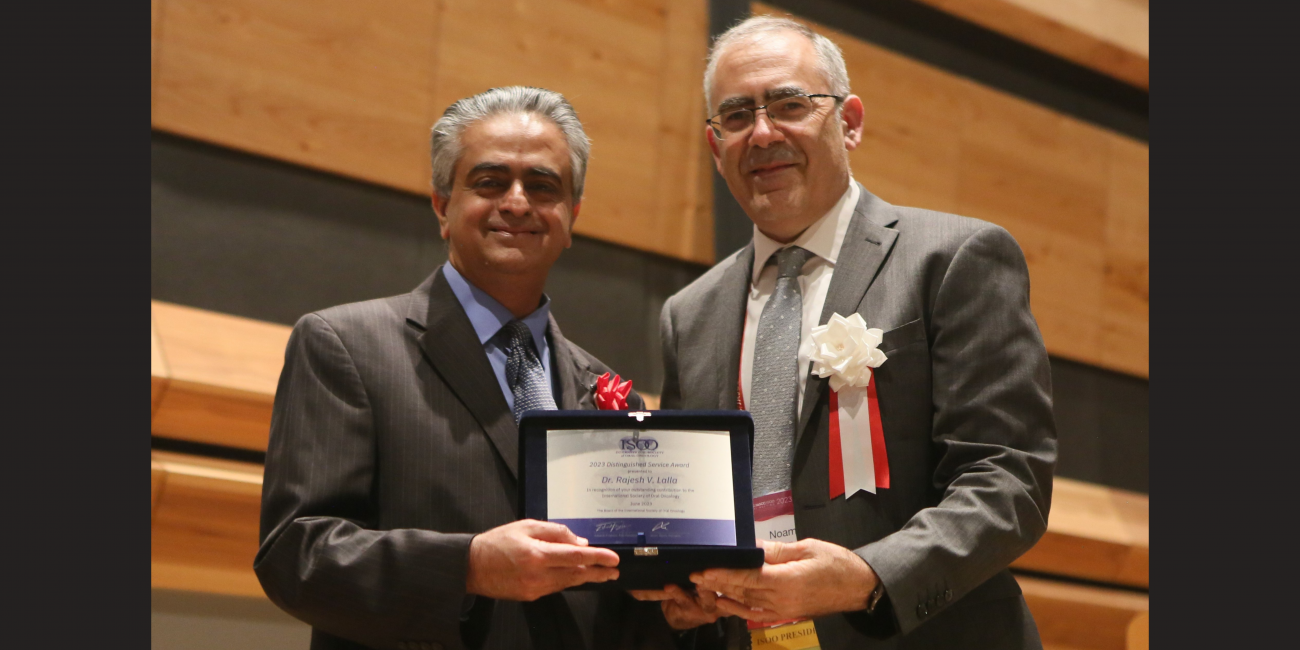Dr. Rajesh V. Lalla, professor of Oral Medicine and associate dean for research at the UConn School of Dental Medicine, received the Distinguished Service Award from the International Society of Oral Oncology (ISOO) at the opening ceremony of the MASCC/ISOO international conference in Nara, Japan in June.
This award is the organization’s highest honor. It recognizes the key role, exemplary leadership, and unparalleled contributions of a member towards the Society’s mission, which is to advance the study and clinical management of oral side effects of cancer therapy.
“It has been an honor for me to contribute to the growth and evolution of our organization and field, with the ultimate mission of improving supportive care for patients who have experienced cancer. And through the work of ISOO and MASCC, we are making a difference in many parts of the world,” says Lalla.
ISOO works in close cooperation with the Multinational Association of Supportive Care in Cancer (MASCC), a larger multidisciplinary group with about 2500 members from more than 70 countries, whose mission is to promote supportive care for oncology patients across all body systems. Much of Lalla’s recent leadership activity in the last 12 years has been in MASCC, culminating with his serving as President of MASCC from 2018 to 2020. He received the MASCC Distinguished Service Award in 2022.
“Dr. Lalla is the only dentist to have served as President of MASCC and has played an important role in strengthening the partnership between ISOO and MASCC. Through his clinical, research, educational, and service activities, Dr. Lalla has made highly significant contributions to advance the field of Oral Oncology and the ISOO mission,” said Dr. Noam Yarom, president of ISOO.
“I had a somewhat unique perspective to see the needs of both ISOO and MASCC and help to strengthen the important partnership between the two organizations. I am happy to have contributed to the new partnership agreement between ISOO and MASCC, which puts the relationship on a very strong footing for many years to come,” says Lalla. “This will ultimately benefit patients who have experienced cancer.”



